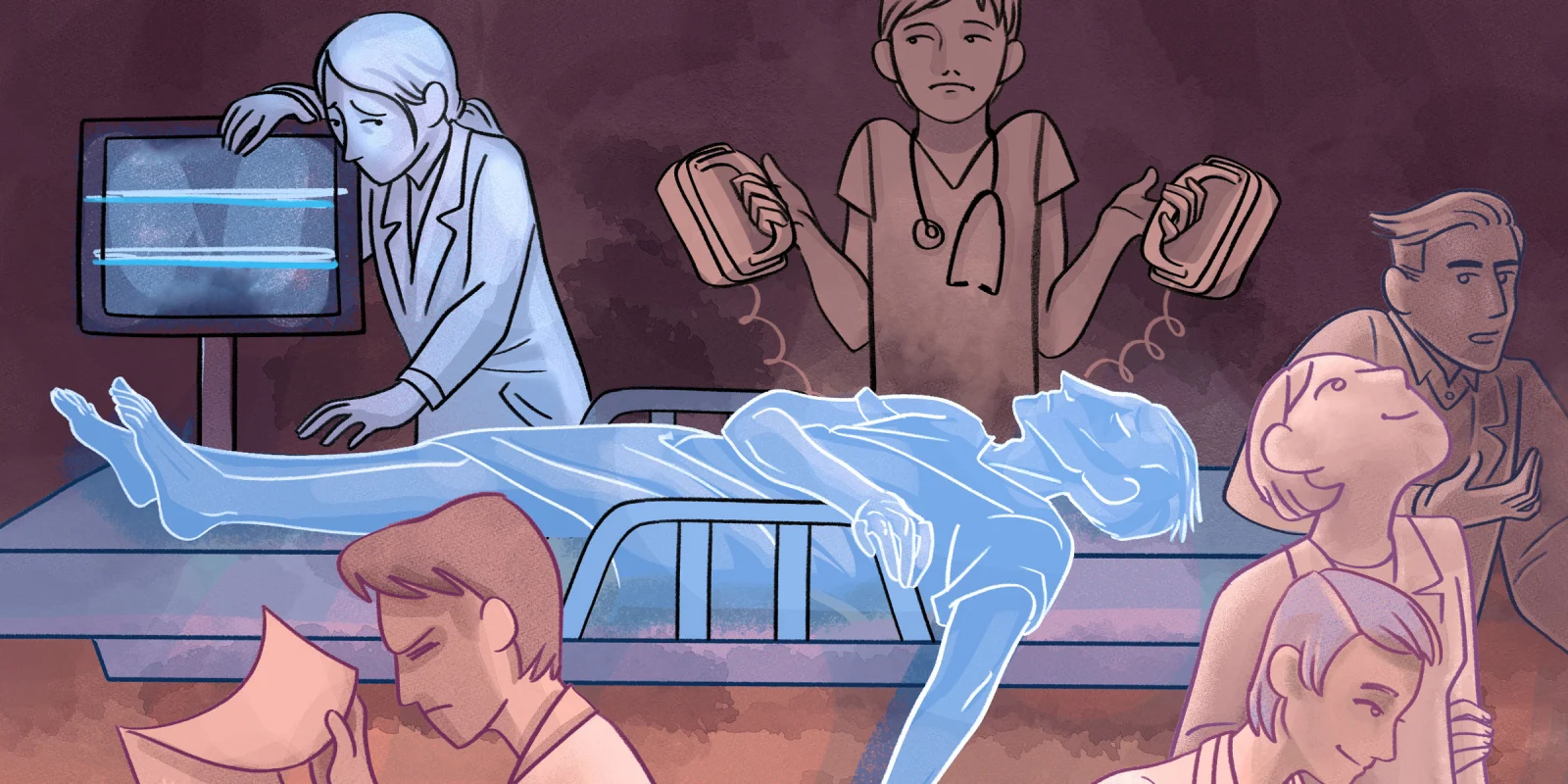The clinician’s paramount mission is to do no harm, an edict I sometimes struggle with when delivering bad news, which often entails a compassionate calculus between giving the whole truth or the metered truth. In the era of COVID-19, compassion can be exceedingly difficult to come by when, as clinicians, we see how many lives might have been saved if patients would have followed public health guidance. I have heard mentors admit, in periods of vulnerability, that it has become more and more difficult to feel empathy for patients who question the science of vaccines but then, once admitted to the hospital or ICU, demand the “kitchen sink” of experimental treatment (much of which is supported by only marginal scientific evidence). The logic just isn’t there.
Half of my hospital’s ICU is filled with patients on ventilators suffering from acute respiratory distress syndrome from COVID-19 pneumonia. For the patients who require the ventilator, mortality ranges from 50–97%. The odds are worst for those with multiple comorbidities. After just a month of working in the ICU, I was becoming cynical, and — dare I admit, often felt that in some COVID-19 cases, I was just prolonging inevitable death.
When I heard that one of my patients, a man named Greg, was being transferred from the outlying hospital to our floor, I felt that he belonged to the “inevitable death” category. Diabetes, coronary artery disease, and chronic kidney disease stage tilted the odds against him. And he was unvaccinated. When he came onto the floor, transported by EMS, he was already crashing. Oxygen saturations in the 60s while on 100% FiO2 on the BiPAP; he needed to be intubated. The critical care nurses and pharmacists drew up paralytics and fentanyl in systematic chaos while I stood at the patient’s head, the endotracheal tube trembling slightly in my hand. I looked down at Greg’s frightened eyes and my nervousness was replaced with pity. This was a man who could not anticipate the consequences of his actions. The corners of his eyes were damp with tears. I wondered what scared him the most right then. In the brief moments when his BiPAP was being traded with the bag valve mask, he opened up his dry and slightly cyanotic lips and asked, “Am I going to be OK?”
In that quarter-second, my heart began to sag. I sputtered out, “… We are going to take good care of you,” but I’m not sure if he heard me. His eyes were already closing.
In the days after, my amygdala replayed the moment over and over as vivid flashbacks. Of course, my day-to-day attitude remains balanced: I wish for good outcomes for the unvaccinated, but also remember that our science says otherwise. My limited experience says otherwise. The attending who has done this for more than two years says otherwise.
For our goals of care discussions in the ICU, I do my best to both communicate reality and convey information accurately so as not to give families false hope. It can be easy for a family to hang onto the slightest improvement, which may not reflect the entire clinical picture. I am lucky that as an intern, I have the calculated and experienced guidance of my attendings and senior residents to coach me on what to say. But in that moment with Greg, I froze. I could not have anticipated how I would feel in that single moment, that one chance to put his mind at ease.
After productive self-reflection, I am able to admit to myself that I said the wrong thing. The bottom line is that if Greg was never going to wake up off the vent, did my honesty really matter? He didn’t need an opportunity to reflect on what he’d be missing: time with his family, joys he’d been anticipating. Now, after my recent experiences, I think that a lie — a false promise kept for patients like Greg at the end of life — does the least harm.
Have you encountered moments in which it was more appropriate to lie to a patient than tell the truth? Share your experiences in the comments.
Katherine Wu, MD, MA, is a preliminary medicine resident who is interested in applying to psychiatry next year. She is passionate about women's mental health, cultural humility in health care, and addiction medicine. In her free time, she likes to tend to her plants, read books, learn about Chinese culture, and stay physically active. Dr. Wu is a 2021–2022 Doximity Op-Med Fellow.
All names and identifying information have been modified to protect patient privacy.
Illustration by April Brust







